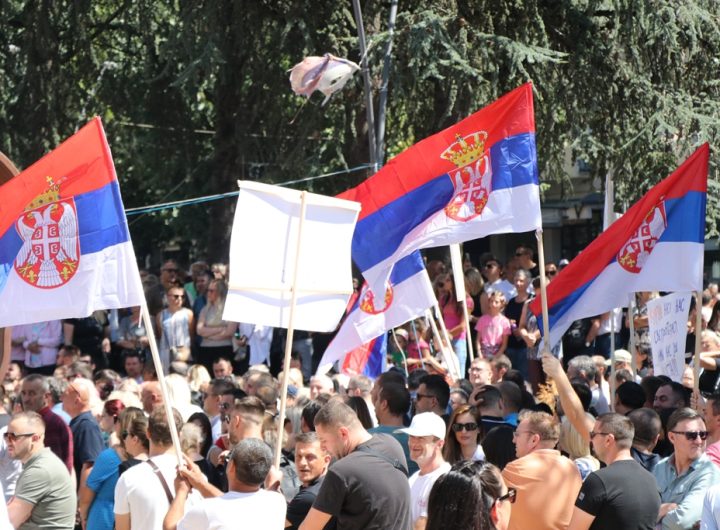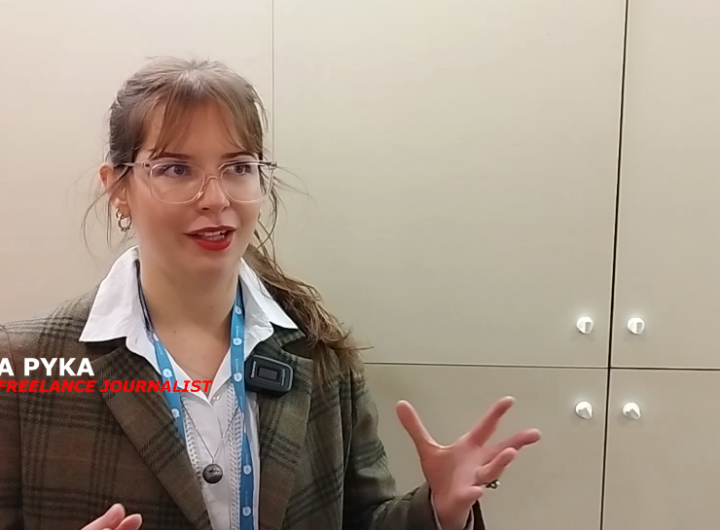
This Saturday, June 28, Serbs celebrate Vidovdan – a date of historical and religious significance that commemorates the Battle of Kosovo in 1389.
The Vidovdan, which is mainly held in Gazimestan near Pristina, has often been used for provocations and to spread chauvinistic messages. Professors, historians and experts on current events tell The Geopost that the “Battle of Kosovo” was transformed into an expansionist ideology and for political purposes by linking the hegemonic political goal of the state with the ecclesiastical narrative.
For professor of international relations Syle Ukshini, the Battle of Kosovo was used to legitimize territorial expansionist goals and to spread the myth that supposedly “Kosovo is the cradle of serbianism”.
“There is hardly any historical or factual evidence for this. There were even historians who claimed that it did not exist. However, with the founding of the Serbian state in the 19th century and in an attempt to legitimize the goals of territorial expansion, the Serbian Academy and especially the Serbian Church spread the Serbian myth that Kosovo was the cradle of Serbianism. On the other hand, it must be noted that the Battle of Kosovo was in reality a coalition of Hungarians, Croats, Bosniaks and Albanians. It was a coalition of Christians, because the Albanians were also Christians… In other words, it is a myth, a fairy tale, but it has been transformed into an expansionist ideology and for political purposes, combining the hegemonic political goal of the state with the ecclesiastical narrative, and this narrative has indeed created problems and conflicts in the Balkans. The most famous case is 1989, when this holiday was celebrated, and the Serbs have since celebrate Vidovdan not as a cultural holiday, not as a historical holiday, but as a chauvinistic holiday, as a holiday where they exclude others. And that is the bad thing and that is the hostile part of it,” he said.
Just last year (June 28, 2024), Serbian motorcyclists who were banned from entering Kosovo during Vidovdan verbally attacked and severely insulted members of the Kosovo police.
This is proof that Serbs are still living in myths, says journalist Radomir Dimić.
“In fact, the myth of Kosovo was built with the aim of restoring Dusan’s empire and thus being a kind of revenge for the lost battle for Kosovo, more precisely an expansionist policy towards Kosovo, especially after the 1990s, when Kosovo gained its independence thanks to the policies and regime of Slobodan Milosevic. As for Serbs in Kosovo, I believe that they still have not fully understood the myth of Kosovo: that it is a deception, that it is a kind of religion that tries to bring heaven to earth, and that Serbs are still the people of Kosovo, that Kosovo is still the holy land of Serbia and essentially a metaphysical space where Albanians live and which they pragmatically experience as their living space, and not as the heavenly history of the Serbian people and so on,” he said.
According to him, the Serbs in Kosovo are still the “Trojan horse”.
“The Serbs of Kosovo are still the Trojan horse of politics, not only of Slobodan Milosevic, when they gathered in large numbers in Gazimestan, when we heard great slogans and great threats against the Albanians of Kosovo, that they would all be expelled through the the Accursed Mountains, and when this Gazimestan policy is in reality just a continuation of a centuries-old ideology that still manifests itself in the present existence and attempt to restore a kind of Serbian world of Aleksandar Vučić. ”
And in more recent academic studies in the West, such as that of Prof. Dr. Oliver Jens Schmitt, one of the most renowned German-speaking historians at the University of Vienna, the claims and myths of Serbian history about the myth of Kosovo and Serbian-Ottoman relations during early Ottoman rule in the Balkans are deconstructed. Schmitt argues that the Serbs provided crucial assistance to the Ottomans in the conquest of the Balkans and were among the most cooperative peoples with the Ottoman court. He thus refutes the previous claim that they, the Serbs, were the only victims of this invasion, while other peoples were their collaborators and supporters. In this sense, the myth of the Battle of Kosovo also appears politicized and unstable. The Serbs transformed the battle into a symbol of “sacrifice for homeland and religion” and glorified the defeat as a moral victory. Prince Lazar was canonized and Kosovo was portrayed as a “holy land”. In the 16th century. In the 20th century, especially during the reign of Slobodan Milošević, the battle was used to justify Serbian claims to Kosovo as the “cradle of the Serbian state and the Serbian religion”. The Serbian narrative portrayed the battle as an exclusive conflict between “Christian Serbs” and “Muslim Ottomans.” /The Geopost/

 Xi’s Military Purges Show Unease About China’s Nuclear Forces
Xi’s Military Purges Show Unease About China’s Nuclear Forces  Exploitation of pain: How regime media use Serbs from Kosovo for political purposes
Exploitation of pain: How regime media use Serbs from Kosovo for political purposes  NATO member Romania finds drone fragments after Russian strikes on Ukrainian ports
NATO member Romania finds drone fragments after Russian strikes on Ukrainian ports  Thailand suspends Cambodia peace deal after landmine blast
Thailand suspends Cambodia peace deal after landmine blast  Six dead as Russia hits energy and residential sites in Ukraine
Six dead as Russia hits energy and residential sites in Ukraine  Polish Journalist: Russia Exploits Internal Divisions to Spread Disinformation
Polish Journalist: Russia Exploits Internal Divisions to Spread Disinformation